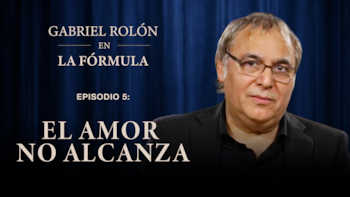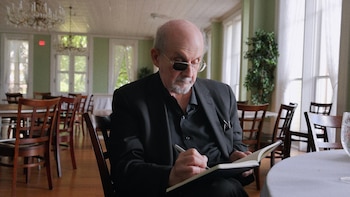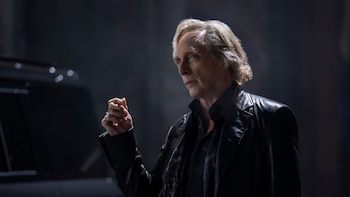According to the Olympic Charter, every National Olympic Committee must be free from government interference. A new survey from Play the Game shows that at least one in seven NOCs have leaders with formal ties to their national governments.
"Sport must keep and protect its freedom in its relations with the political sphere and have the freedom to take decisions in self-determination and autonomy."
As the then vice-president, today president, of the International Olympic Committee (IOC), Thomas Bach, stated back in 2009 at the Olympic Congress in Copenhagen, autonomy is a key and often controversial issue in the international sports debate. However, does the IOC enforce its own principle of autonomy?
This is one of the questions that Play the Game raises in the new ‘autonomy index’ examining how many National Olympic Committees (NOCs) that are managed at the top level by individuals representing governments, ruling monarchies, or individuals with senior positions in governmental sports institutions.
The survey, authored by political science student Mads Wickstrøm and communications officer MA Stine Alvad from Play the Game, shows that nearly 15% or 30 of the 205 recognised NOCs (Kuwait currently being suspended) are directly controlled by people with positions in government.
For the sake of clarity, the survey disregards all indirect relationships such as friend- or kinships, even if more informal alliances are often shown to have just as much influence over sport in numerous countries. Additionally, as NOC leaders are elected for limited terms, the results provide only a snapshot of the situation as of late 2016.
"Knowing the strict rules of the IOC and its frequent flagging of autonomy as an almost sacred principle, it is surprising that the IOC can allow no less than 30 NOCs to be directly controlled by government officials," says Play the Game’s international director Jens Sejer Andersen in a comment to the survey.
While the Olympic Charter does not prohibit NOCs to elect government representatives as members, the charter states that the NOCs must resist external political and economic pressures.
On one hand, the principle serves to protect freedom of association and sport’s right to make its own rules, on the other, autonomy has often been used as a shield to protect corrupt practices from outside intervention, Jens Sejer Andersen argues.
He sees an evident conflict of interest if one and the same person is expected to act in the best interest of his or her government while safeguarding the independence of the NOC she or he is leading.
"It appears as if the IOC is defending autonomy randomly and only when convenient, for instance in cases where a country acts against narrow interests of Olympic power brokers, like we have seen in the case of Kuwait. If the IOC is not able to speak up against direct government management of sport in countries with full integration of sport and government such as China and Azerbaijan, how will it defend association freedom in the many countries that have more indirect ways of controlling sport," he asks.
One third of Asian NOCs have formal ties to government
While the overall findings reveal that 30 of 205 NOCs are led by a president and/or secretary general with direct formal ties to government institutions, there are strong regional differences.
In Asia, more than one third of the NOCs have leaders who are employed by or formally connected to government institutions. The regional confederation with the second most is the Oceanian (ONOCA) (11.8%), followed by the European (EOC) (10%), African (ANOCA) (7.4%) and the American (PASO) (7.3%).
The survey also analyses links between the overall political freedom in the countries and the dependence of the NOC. Index scores on political liberties from Freedom House are included in the survey to assess whether NOCs within countries with low estimated political freedom are more often led by individuals who are formally connected to the national government and the results reveal a clear pattern.
Just as in the autonomy survey, Asia is the region where countries suffer the most from government restrictions on civil liberties and political rights of citizens. In the European region, the relatively few countries with an evident relation between NOC management and government roles are also the European countries with a tarnished reputation in terms of adhering to human rights and democratic practices.
For example, among all the NOC presidents, four are also heads of state. Two of these are from the European region: Azerbaijan and Belarus.
A need for better conflict of interests rules?
A strong connection between NOCs and governments challenges the very concept of sport as an independent international movement free to define its own agenda, argues the survey, questioning also the Olympic Movement‘s ability to defend its own principles of autonomy.
"NOCs become a convenient tool in the hands of most often non-democratic governments or ruling families using sport events and sports political influence to attract international attention and prestige, open doors to new political and diplomatic relations and create business opportunities. Hence, sport is reduced to an instrument of soft power," it says.
Conclusively, the survey asks whether the IOC should introduce conflict of interest principles that could rule out certain categories of people such as ministers or heads of state as NOC leaders as a way to further secure the autonomy of sport.
The information used to study the relations of NOC leaders has primarily been retrieved from the Association of National Olympic Committees (ANOC)’s NOC directory.
More information:
Read the complete analysis and survey of the autonomy of National Olympic Committees:
Autonomy in National Olympic Committees 2017 - An autonomy index
25 Years at #1: Your best source of news about the Olympics is www.aroundtherings.com, for subscribers only
Últimas Noticias
Utah’s Olympic venues an integral part of the equation as Salt Lake City seeks a Winter Games encore
Utah Olympic Legacy Foundation chief of sport development Luke Bodensteiner says there is a “real urgency to make this happen in 2030”. He discusses the mission of the non-profit organization, the legacy from the 2002 Winter Games and future ambitions.

IOC president tells Olympic Movement “we will again have safe and secure Olympic Games” in Beijing
Thomas Bach, in an open letter on Friday, also thanked stakeholders for their “unprecedented” efforts to make Tokyo 2020 a success despite the pandemic.

Boxing’s place in the Olympics remains in peril as IOC still unhappy with the state of AIBA’s reform efforts
The IOC says issues concerning governance, finance, and refereeing and judging must be sorted out to its satisfaction. AIBA says it’s confident that will happen and the federation will be reinstated.

IOC president details Olympic community efforts to get Afghans out of danger after Taliban return to power
Thomas Bach says the Afghanistan NOC remains under IOC recognition, noting that the current leadership was democratically elected in 2019. But he says the IOC will be monitoring what happens in the future. The story had been revealed on August 31 in an article by Miguel Hernandez in Around the Rings

North Korea suspended by IOC for failing to participate in Tokyo though its athletes could still take part in Beijing 2022
Playbooks for Beijing 2022 will ”most likely” be released in October, according to IOC President Thomas Bach.




